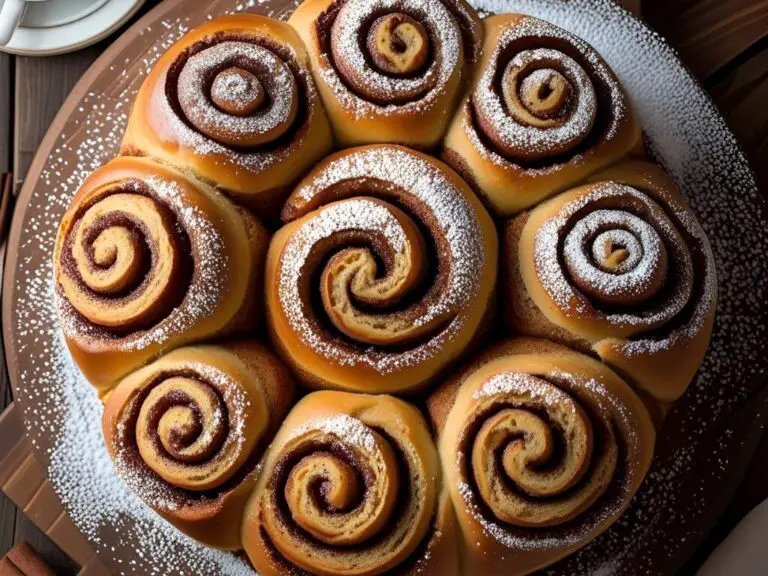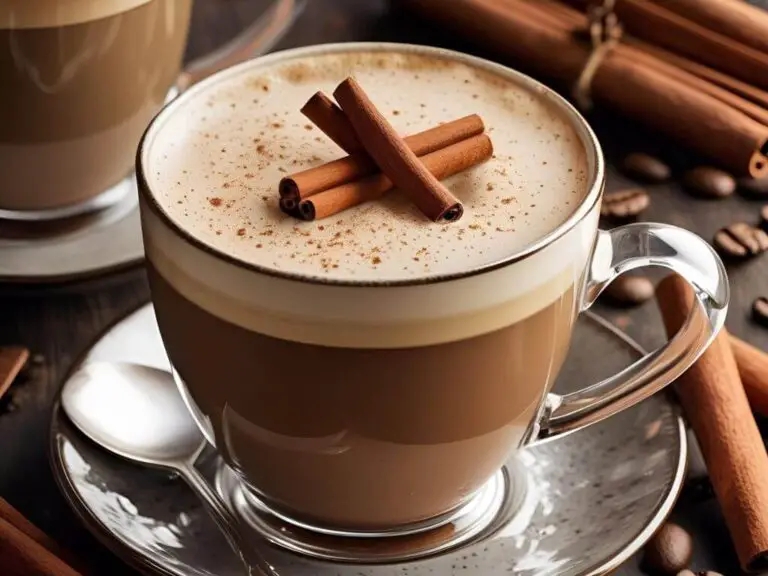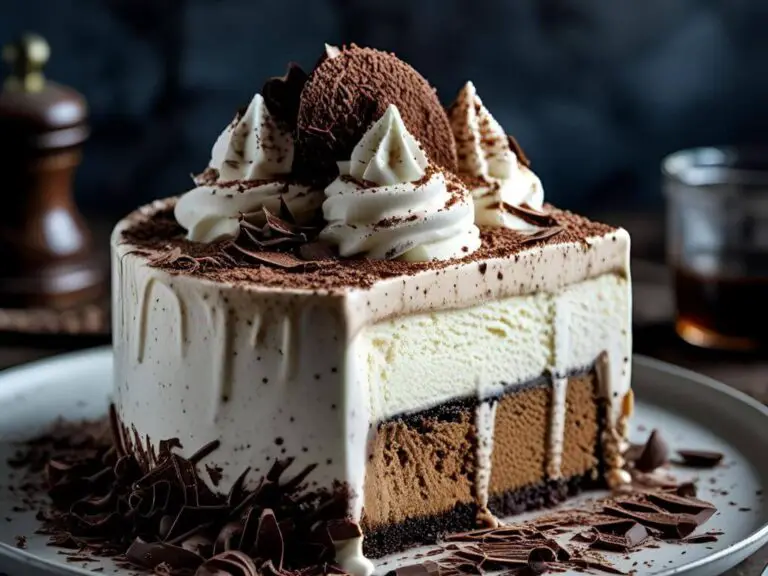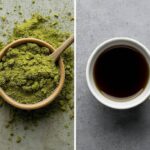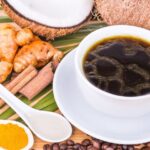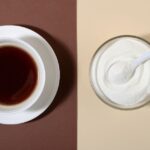Matcha vs Black Tea Caffine : Which Has More
Did you know that not all cups of tea give you the same energy boost? While many people enjoy a hot cup of tea in the morning or afternoon, the type of tea you choose can make a big difference in how awake and focused you feel.
Today, we’re diving into the great caffeine debate: matcha vs black tea caffeine. Both teas are beloved worldwide, but which one actually gives you more of a kick? Understanding the caffeine content isn’t just about staying awake—it can affect your energy, focus, and even sleep patterns.
Whether you’re a matcha enthusiast or a black tea lover, this guide will help you choose the right tea for your lifestyle. Let’s sip smarter! 🌿⚡
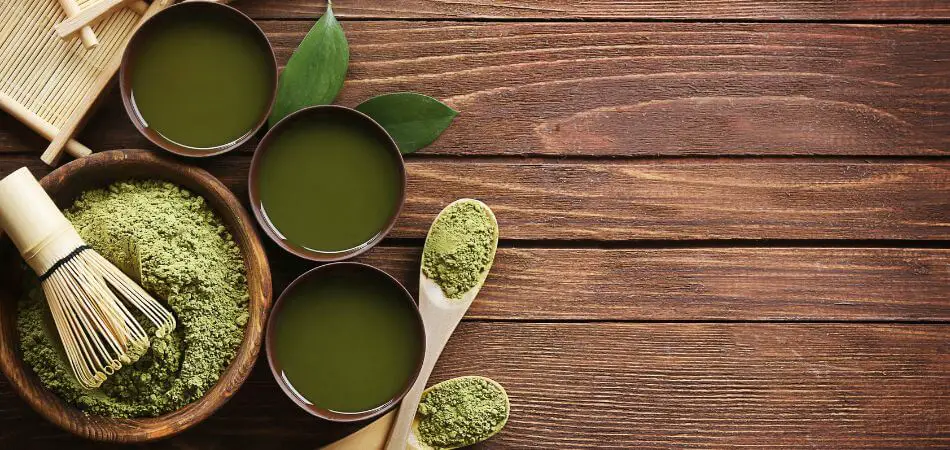
1️⃣ What is Matcha? 🍵🌿
Matcha is a special type of green tea from Japan, known for its vibrant green color and unique flavor. Unlike regular green tea, matcha is made by grinding the whole tea leaves into a fine powder. This means when you drink matcha, you’re consuming the entire leaf, not just an infusion.
Why Matcha’s Caffeine is Special
- Whole leaf consumption → more caffeine per serving
- Contains L-theanine → promotes calm alertness, reduces jitters
- Preparation method → traditionally whisked in hot water, giving a smooth texture
Fun fact: A traditional Japanese tea ceremony isn’t just about taste—it’s about focus, mindfulness, and energy from every sip.
2️⃣ What is Black Tea? ☕🖤
Black tea is one of the most popular teas in the world—and for good reason. It has a bold flavor, rich aroma, and just the right amount of caffeine to wake you up. Unlike matcha, which is made by grinding whole green tea leaves, black tea goes through a process called oxidation. This is what gives it that dark color and strong taste.
How Black Tea is Made 🍂
- Fresh tea leaves are picked.
- They are withered and rolled to release enzymes.
- Leaves are fully oxidized, turning them dark brown or black.
- Finally, they are dried and packed.
How It’s Brewed ☕
Unlike matcha (which you whisk directly into water), black tea is steeped in hot water. The amount of caffeine you get depends on:
- Steeping time ⏳ (longer brew = stronger tea)
- Tea type (some blends naturally have more caffeine)
- Serving size (bigger cup, more caffeine)
Popular Types of Black Tea and Average Caffeine 💡
- Assam → 50–60 mg
- Darjeeling → 40–50 mg
- English Breakfast → 50–70 mg
- Earl Grey → 40–60 mg
👉 On average, a cup of black tea has 40–60 mg of caffeine per 8 oz serving.
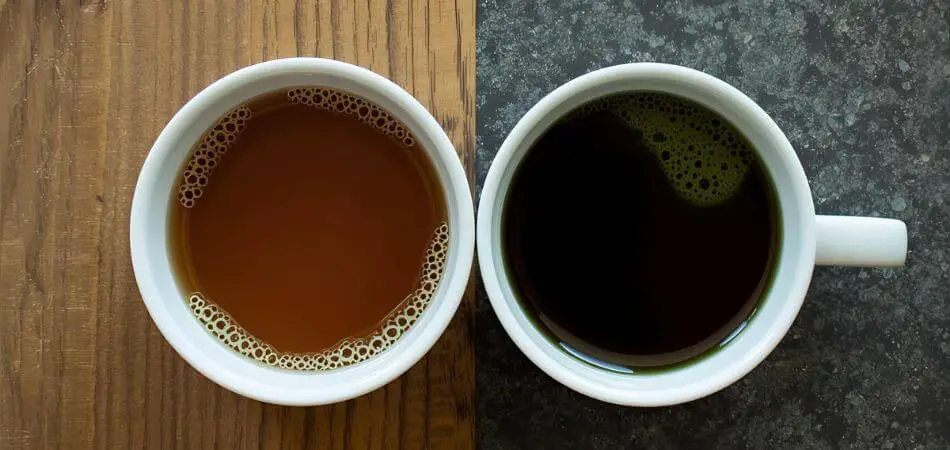
3️⃣ Caffeine Content: Matcha vs Black Tea ⚡☕
Now that we know what makes matcha and black tea unique, let’s get to the real question: Which one has more caffeine?
Here’s a quick comparison:
| ☕ Beverage | 📏 Serving Size | ⚡ Caffeine (mg) | 📝 Notes |
|---|---|---|---|
| 🍵 Matcha | 1 tsp (2g powder) | 60–70 mg | Whole leaf powder, whisked |
| 🖤 Black Tea | 8 oz (240 ml brew) | 40–60 mg | Steeping time changes caffeine |
Why Matcha Often Feels Stronger 🌿⚡
- You consume the entire leaf, not just an infusion.
- The caffeine in matcha is released gradually, thanks to L-theanine.
- Even a small serving (just 1 tsp) can match or surpass a full cup of black tea.
👉 Key takeaway: Matcha generally provides more caffeine per gram, but black tea can still pack a punch—especially if brewed strong.
Fun Emoji Break:
🍵 = smooth, steady energy
☕ = bold, classic boost
4️⃣ How Caffeine Affects You 🧠✨
Both matcha and black tea give you that much-needed boost, but the way the caffeine works in your body is a little different.
⚡ Matcha Caffeine Effects
- Smooth energy release → thanks to L-theanine, caffeine is absorbed slowly.
- Calm alertness → you feel focused without jitters.
- Great for work or study → perfect balance of energy + concentration.
☕ Black Tea Caffeine Effects
- Quick lift → caffeine hits faster than matcha.
- Stronger initial buzz → can be perfect for mornings.
- May cause a crash later → especially if you’re sensitive to caffeine.
🛏️ How They Impact Sleep
- Matcha: More gentle, but still best enjoyed earlier in the day.
- Black Tea: Stronger lift, but can keep you awake if consumed late afternoon or evening.
✅ Pros & Cons at a Glance
| 🍵 Matcha | ☕ Black Tea | |
|---|---|---|
| ✅ Pros | Smooth energy, less jitters, focus boost | Bold flavor, quick energy, easy to brew |
| ❌ Cons | Can be pricey, needs whisking | Possible crash, stronger on the stomach |
👉 In short: Matcha is like a steady flame 🔥, while black tea is more like a quick spark ⚡. Both are great—it just depends on what you need.
5️⃣ Health Benefits Linked to Caffeine 🌿💪
Both matcha and black tea are more than just tasty drinks—they’re loaded with natural compounds that bring health perks alongside caffeine. Let’s break it down:
🍵 Benefits of Matcha
- Mental alertness & focus → combo of caffeine + L-theanine = calm focus.
- Rich in catechins (EGCG) → powerful antioxidants that support heart health and metabolism.
- Supports fat metabolism → often linked to gentle calorie-burning benefits.
- Less caffeine crash → smoother energy curve throughout the day.
☕ Benefits of Black Tea
- Boosts mental clarity → caffeine sharpens focus quickly.
- Rich in polyphenols → antioxidants that may support gut health and immunity.
- Supports heart health → some studies link black tea with improved cholesterol balance.
- Widely accessible & affordable → easy to make anywhere.
⭐ Quick Comparison: Health Perks
| 🌿 Tea | 🧠 Focus | 💓 Heart Health | 🔥 Metabolism | ⚡ Energy Style |
|---|---|---|---|---|
| 🍵 Matcha | Calm + steady | ✅ Strong catechins | ✅ Boosts fat burn | Smooth & lasting |
| ☕ Black Tea | Quick clarity | ✅ Polyphenols | ⚪ Mild effect | Fast & bold |
👉 Both teas are antioxidant-rich powerhouses, but matcha gives you calm focus and fat-burning perks, while black tea offers bold flavor and heart-loving polyphenols.
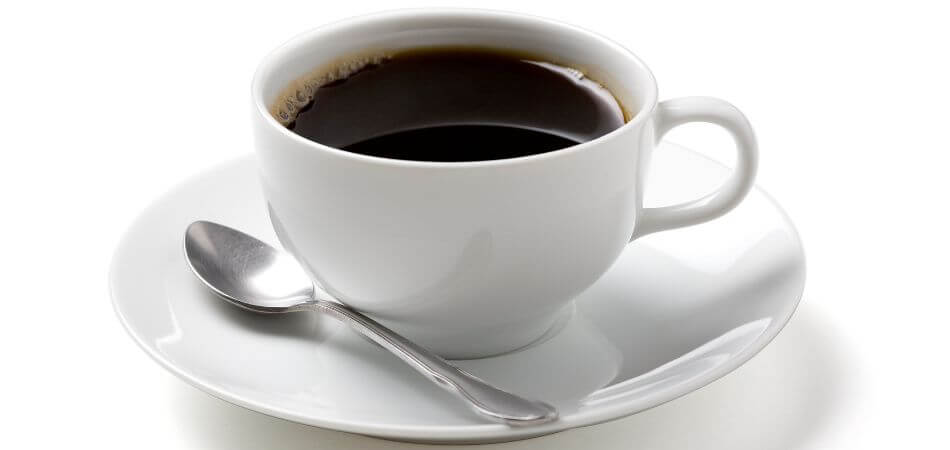
6️⃣ Best Time to Drink Matcha vs Black Tea ⏰🍵☕
Since matcha vs black tea caffeine works differently in your body, the time of day you drink them matters for energy, focus, and sleep.
🍵 Best Time for Matcha
- Morning boost 🌅 → gives you smooth, lasting energy without a crash.
- Midday focus 🖥️ → great before studying, meetings, or creative work.
- Not too late in the evening 🛏️ → still contains caffeine that might delay sleep.
☕ Best Time for Black Tea
- Early morning wake-up 🌞 → stronger kick to help you shake off sleepiness.
- Afternoon pick-me-up 🕒 → perfect for when energy starts dipping.
- Avoid late at night 🌙 → quick caffeine hit may keep you awake.
📝 Quick Checklist: When to Drink
✅ Choose Matcha If…
- You need calm but steady focus.
- You want to avoid jitters.
- You’re working, studying, or meditating.
✅ Choose Black Tea If…
- You want a bold and fast energy boost.
- You enjoy traditional tea flavors.
- You need a classic afternoon pick-me-up.
👉 In short: matcha is your “study buddy” 📚🍵, while black tea is your “wake-up call” ⏰☕.
7️⃣ Potential Side Effects of Caffeine 🚫⚡
Even though matcha and black tea bring energy and focus, their caffeine can sometimes backfire—especially if you’re sensitive or drink too much.
⚠️ Common Side Effects
- Jitters & restlessness → more likely from black tea (quick caffeine hit).
- Sleep disturbances 🛏️💤 → drinking either too late may keep you awake.
- Increased heart rate 💓 → happens when you consume multiple cups quickly.
- Digestive upset 🤢 → black tea tannins may feel harsh on an empty stomach.
🍵 Matcha-Specific Notes
- Usually gentler due to L-theanine.
- Less likely to cause sudden crashes.
☕ Black Tea-Specific Notes
- Stronger brews = more caffeine kick (and potential jitters).
- Multiple cups in a short time may feel overwhelming.
📌 Safe Daily Caffeine Limits
Health experts suggest:
- Up to 400 mg/day of caffeine for healthy adults.
- That equals about:
- 5–6 cups of black tea ☕
- 5–6 servings of matcha 🍵
👉 But remember: everyone’s body is different—some people feel jittery after just one cup, while others can handle more.
8️⃣ Which One Should You Choose? 🤔⚖️
So now the big question: Should you go for matcha or black tea? The answer depends on your lifestyle, taste, and caffeine tolerance. Let’s make it simple!
✅ Choose Matcha If…
- You want smooth, steady energy without a crash.
- You need focus for study, work, or meditation.
- You enjoy earthy, creamy flavors (especially in lattes).
- You’re looking for extra antioxidant benefits 🌿.
✅ Choose Black Tea If…
- You like a quick, bold caffeine kick ⚡.
- You love the classic tea experience (steeping, sipping, adding milk/lemon).
- You enjoy strong, rich flavors (English Breakfast, Earl Grey).
- You want something more affordable and easy to brew.
⚖️ Quick Side-by-Side
| 🔍 Factor | 🍵 Matcha | ☕ Black Tea |
|---|---|---|
| ⚡ Energy | Smooth & lasting | Fast & bold |
| 🎯 Focus | Calm alertness | Quick clarity |
| 🌿 Flavor | Earthy, grassy | Rich, malty |
| 💲 Price | Often higher | Usually cheaper |
| 🛠️ Prep | Whisk powder | Steep leaves |
👉 In short:
- Matcha = Zen energy 🌱✨ (smooth, mindful, steady).
- Black Tea = Classic boost ☕⚡ (strong, bold, reliable).
Both are winners—it just depends on what kind of energy you’re looking for!
9️⃣ Fun Ways to Enjoy Both 🍹🥛
Whether you’re a matcha lover or a black tea fan, there are so many tasty ways to enjoy your daily dose of caffeine. Let’s explore!
🍵 Matcha Recipes & Ideas
- Matcha Latte 🥛🌿 → whisk matcha with hot water, add steamed milk + honey.
- Iced Matcha ❄️🍵 → shake matcha with cold water + ice, add a splash of oat milk.
- Matcha Smoothie 🥭🍌 → blend matcha with banana, almond milk, and spinach.
☕ Black Tea Recipes & Ideas
- Classic English Breakfast Tea 🥐☕ → steep strong, add milk & sugar for comfort.
- Earl Grey Latte (“London Fog”) 🌫️🥛 → black tea + steamed milk + vanilla + lavender.
- Iced Black Tea with Lemon 🍋❄️ → refreshing summer drink with honey.
🔄 Balancing Caffeine Intake
- Start the day with matcha for smooth, lasting focus.
- Enjoy black tea after lunch for a bold lift.
- Switch to herbal tea in the evening 🌙 for zero caffeine.
✨ Pro tip: Mix it up! Some people enjoy matcha in the morning and black tea in the afternoon to balance energy without going overboard.
1️⃣0️⃣ Conclusion 📝✨
So, when it comes to matcha vs black tea caffeine, both teas have their own strengths:
- Matcha gives you a smooth, steady energy with calm focus, thanks to L-theanine 🌿.
- Black tea delivers a bold, quick caffeine kick with rich, comforting flavors ☕.
At the end of the day, it’s not about which is “better,” but which one fits your lifestyle, taste, and energy needs.
FAQ’s
Is matcha more caffeinated than black tea?
Yes, matcha usually has more caffeine than black tea because you consume the whole powdered leaf. Black tea contains caffeine too, but typically in a lower amount per serving than matcha.
Which tea has the highest caffeine?
Black tea usually has the highest caffeine content among true teas, averaging 40–70 mg per cup. However, matcha green tea can surpass it since you consume the whole powdered leaf, giving a stronger caffeine boost.

